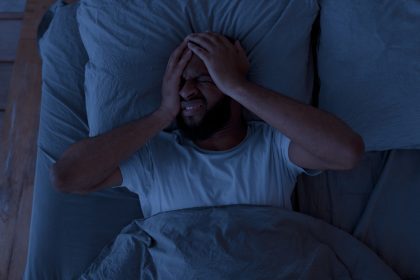Spending even a single week without social media can have a surprising effect on the brain. In a world fueled by constant connection, endless scrolling and instant feedback, removing platforms like Instagram, X (formerly Twitter), TikTok and Facebook from daily life becomes more than a digital detox—it becomes a psychological reset.
The immediate silence
The first few hours after quitting social media often create a jarring sensation. For many, social apps are opened unconsciously throughout the day. Notifications, direct messages and endless stories have trained the brain to expect stimulus. Without it, there’s a void.
This absence can trigger mild symptoms of withdrawal—yes, real withdrawal. Several studies suggest social media activates the brain’s reward system in a way similar to gambling or sugar consumption. The rush of likes, comments or shares stimulates dopamine release, the brain’s “feel-good” chemical.
Removing that trigger leads to emotional turbulence. Some report feeling anxious or irritable. Others experience restlessness or boredom. These responses reflect the brain’s adjustment to reduced external stimulation.
The anxiety spike
By the second or third day, many people notice a subtle anxiety build-up. This anxiety isn’t caused by a fear of missing out on memes or viral trends—it’s rooted in how social media has integrated itself into emotional regulation.
People often turn to their feeds when they’re bored, lonely, stressed or seeking connection. Social media becomes a buffer against uncomfortable emotions. Without it, the brain is forced to confront those emotions directly.
At this stage, individuals may experience a temporary dip in mood or confidence. Without constant updates and comparison triggers, the mind begins to wander more. This wandering, though uncomfortable at first, is actually a sign of recovery.
Cognitive clarity emerges
By the fourth day, something fascinating happens: the brain begins to calm down. The flood of alerts, updates and algorithmic content that once competed for mental attention begins to feel distant.
Cognitive clarity often follows. Many people report improved focus at work, deeper sleep and an increase in creative thinking. This isn’t coincidental. Social media overloads working memory and increases mental fatigue by demanding frequent shifts in attention. A week away gives the brain a chance to recover.
Mental clarity, once dull from digital fog, becomes sharper. Thoughts feel more complete. Tasks that once seemed daunting feel manageable. The brain’s bandwidth, once clogged with meaningless data, becomes available again.
Real-life engagement increases
Without social media eating up small moments, people start filling the silence differently. Conversations become longer. Books are opened more. Some people go for walks, cook new meals or reach out to old friends through voice calls or texts.
The brain’s reward system begins finding joy in the present moment rather than digital engagement. That joy is slower but more sustainable. Serotonin—the chemical related to happiness and well-being—begins to replace dopamine as the dominant mood influencer.
This shift promotes a sense of peace and groundedness. You’re no longer comparing yourself to influencers or celebrities. The body image issues, career envy or lifestyle dissatisfaction that often stems from curated content begin to fade.
Mood and sleep improve
After a week, many individuals report lower levels of depression and anxiety. According to studies by the University of Pennsylvania and the University of Bath, limiting social media to just 30 minutes a day—or abstaining altogether—results in measurable improvements in mood and well-being.
One of the most overlooked benefits is better sleep. The blue light from phones delays melatonin production and disrupts circadian rhythms. But it’s not just the light; it’s the mental stimulation from scrolling late into the night.
When social media is removed, people tend to fall asleep faster, sleep longer and report fewer disturbances. The brain, now less stimulated, enters deeper stages of sleep more easily, leading to better cognitive performance and emotional regulation during the day.
The validation loop breaks
Social media trains users to seek external validation. A post, a selfie, a hot take—all crafted for reactions. Over time, this can shift the brain’s motivation systems. Instead of doing things for personal satisfaction, individuals begin seeking feedback.
But within a week of quitting, the desire for approval begins to decline. People rediscover internal motivations. They read because they enjoy reading, not because it’s “aesthetic.” They workout for strength, not for gym selfies. This psychological independence is freeing.
By stepping back from constant feedback, the brain strengthens its sense of self-worth. Confidence becomes intrinsic rather than performative.
Mindfulness and productivity increase
Without the mental noise of social media, people become more attuned to their thoughts and surroundings. Mindfulness increases. Simple activities like cooking or listening to music feel more immersive. The brain isn’t being pulled in a hundred directions—it’s focused.
It’s no surprise that without social media, the average person gains back over two hours per day. With this time, people rediscover hobbies, pursue new skills or simply rest without guilt.
The brain, less distracted, can handle deep work more efficiently. Tasks that usually get interrupted by checking notifications are completed in half the time. Many professionals report that after a week off social media, their attention span increases noticeably.
The return with perspective
The brain doesn’t forget the high-speed rush of social media, but after a week away, most people return with a new perspective. They notice how loud it feels. How shallow certain interactions seem. How quickly time evaporates when they’re back online.
Some choose to delete specific apps permanently. Others reinstall but set new boundaries—screen time limits, notification cuts or content filters.
Taking a week off social media exposes how deeply our minds rely on external content for stimulation, distraction and affirmation. But in just seven days, your brain begins to heal. You reclaim attention. You recover joy. You remember how good it feels to simply be.















